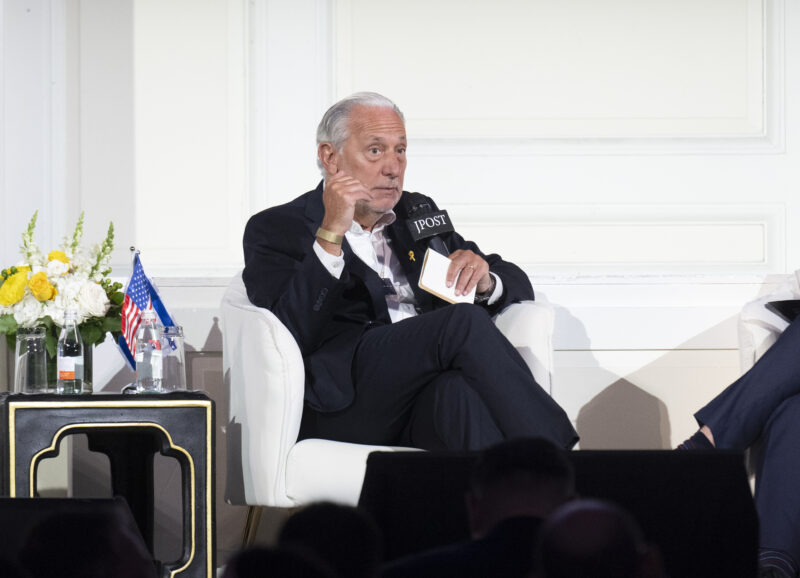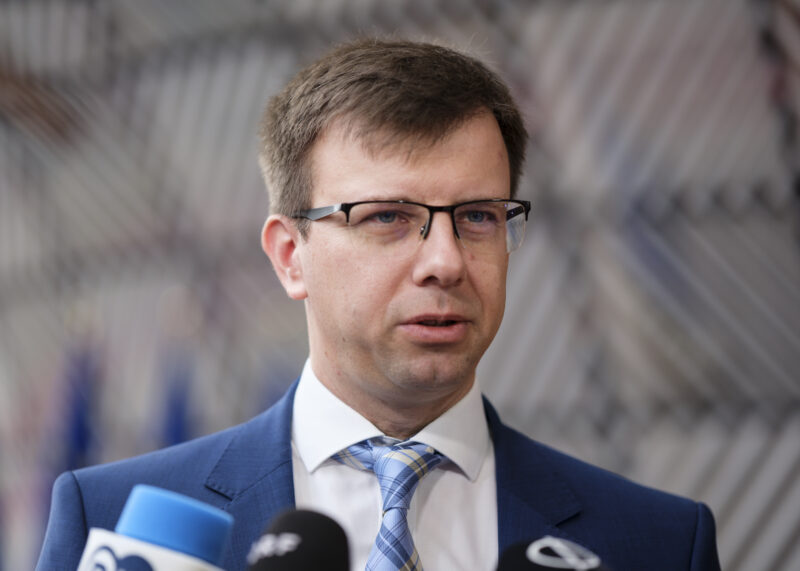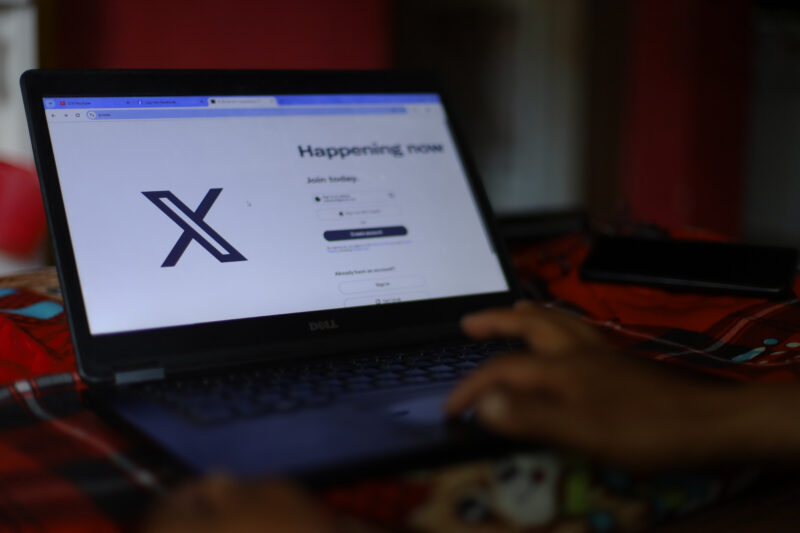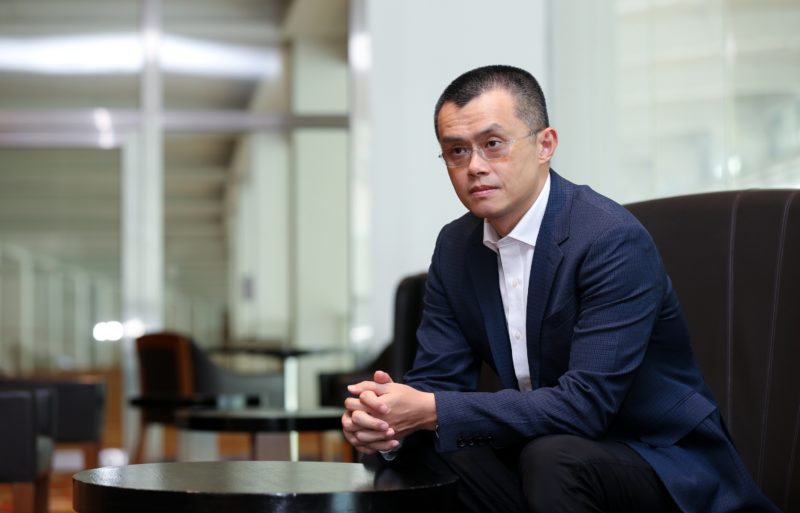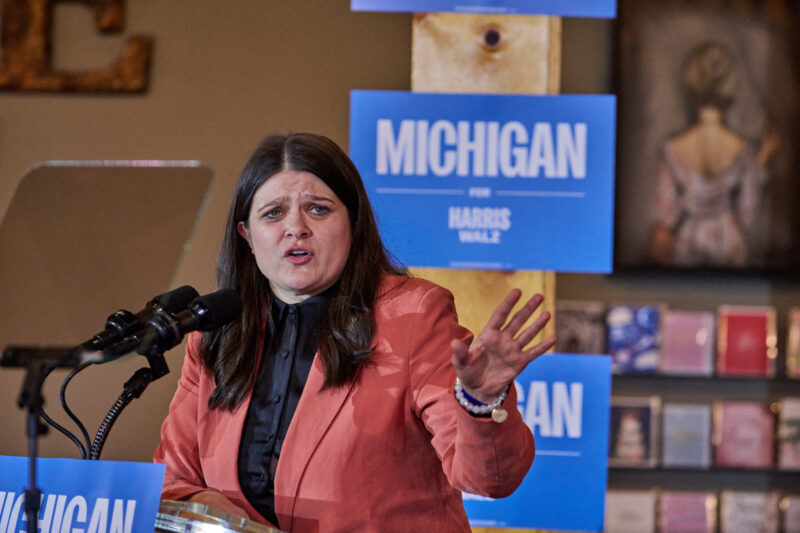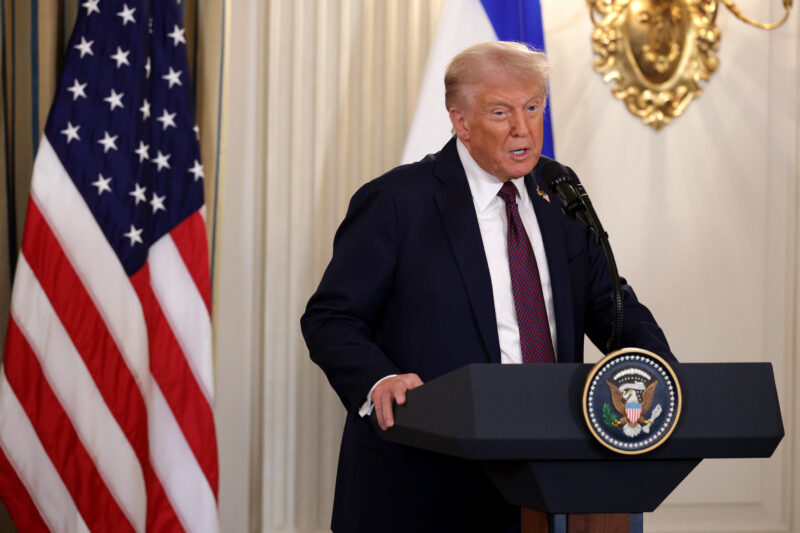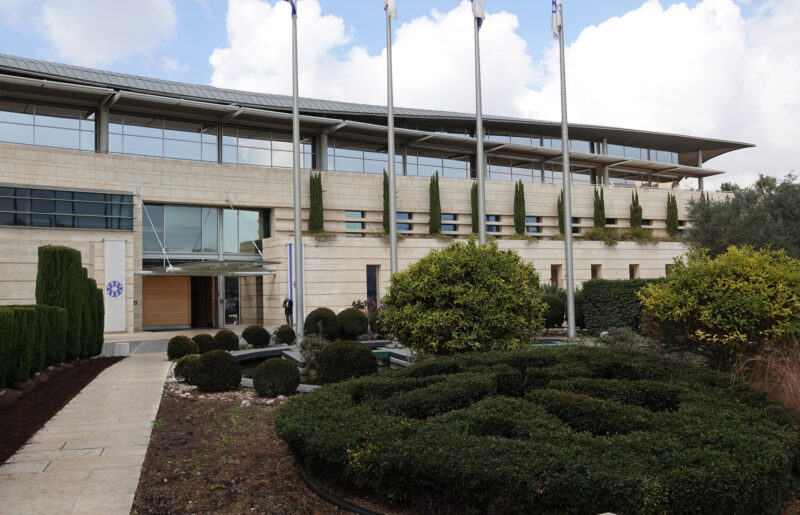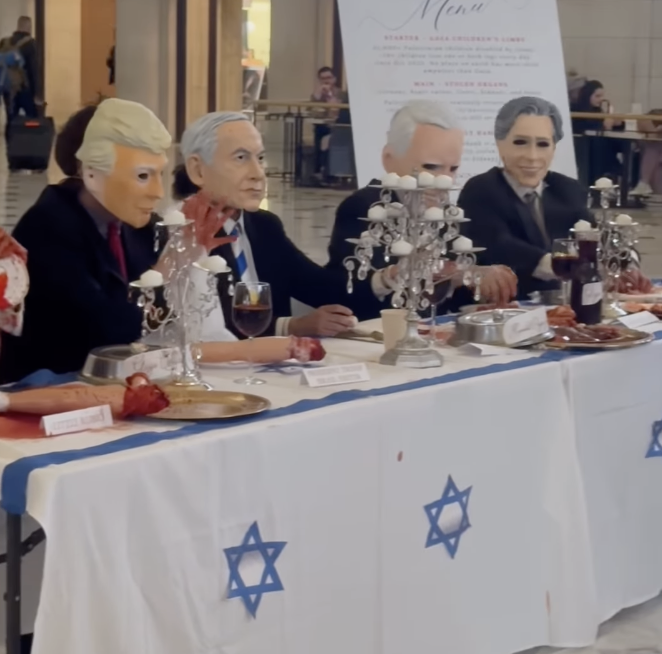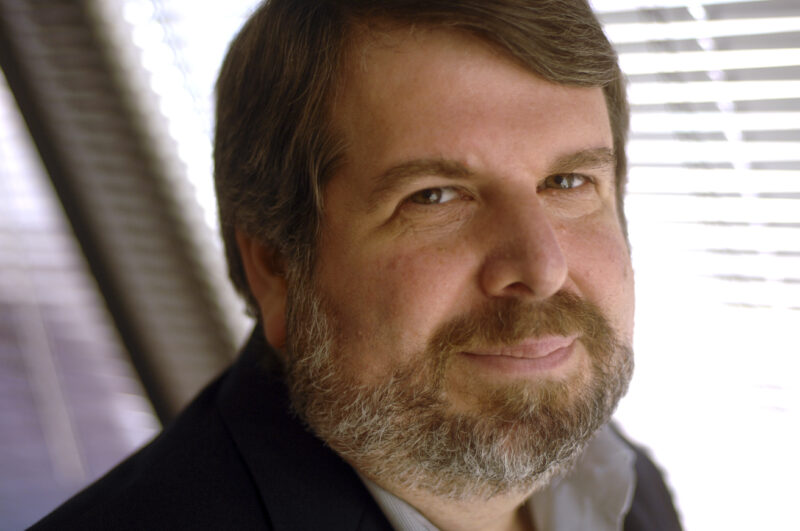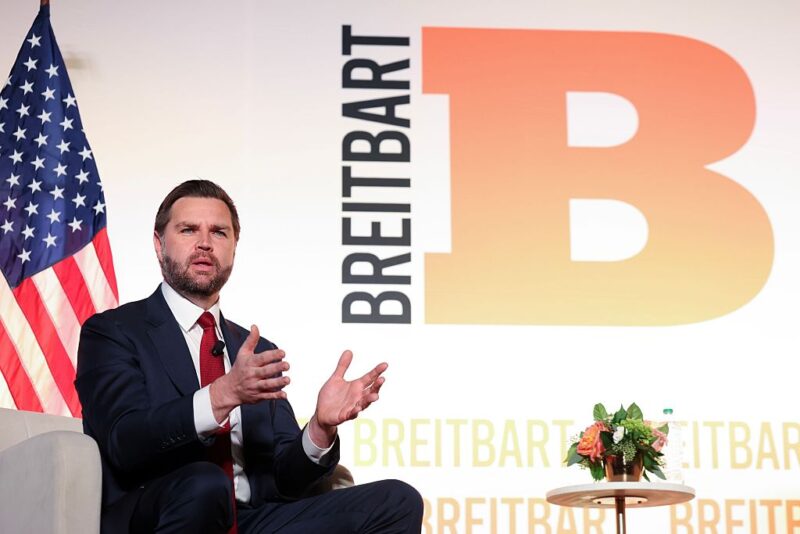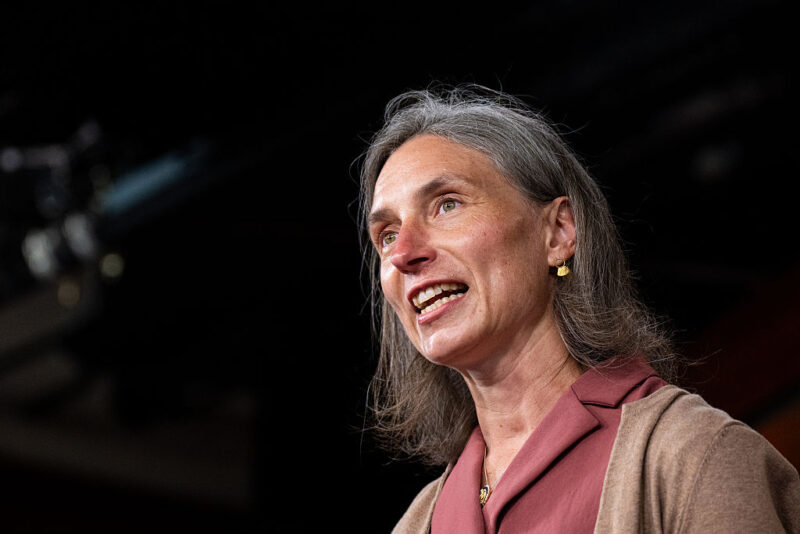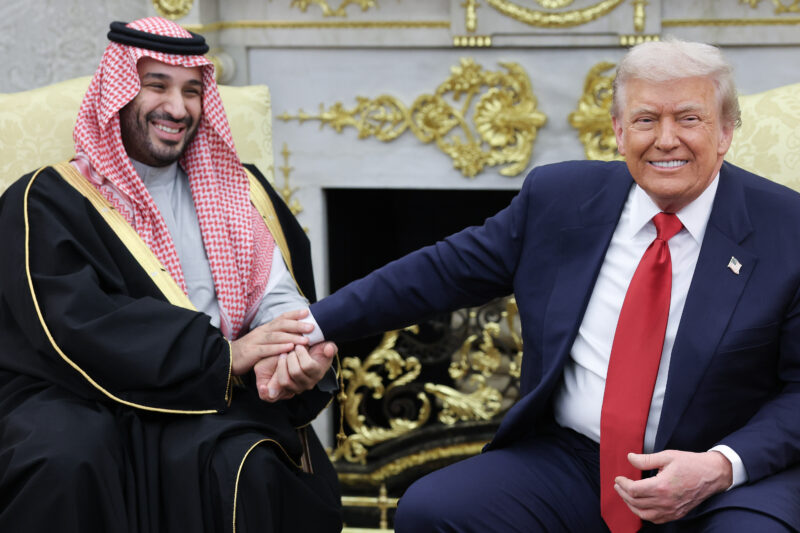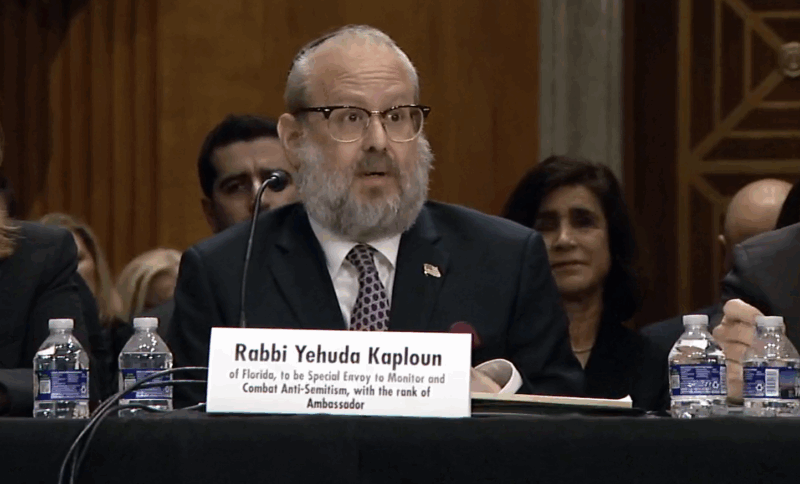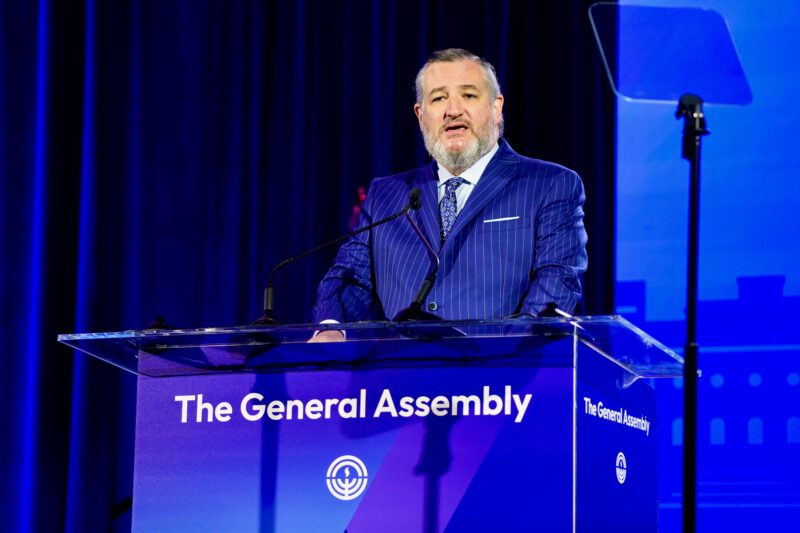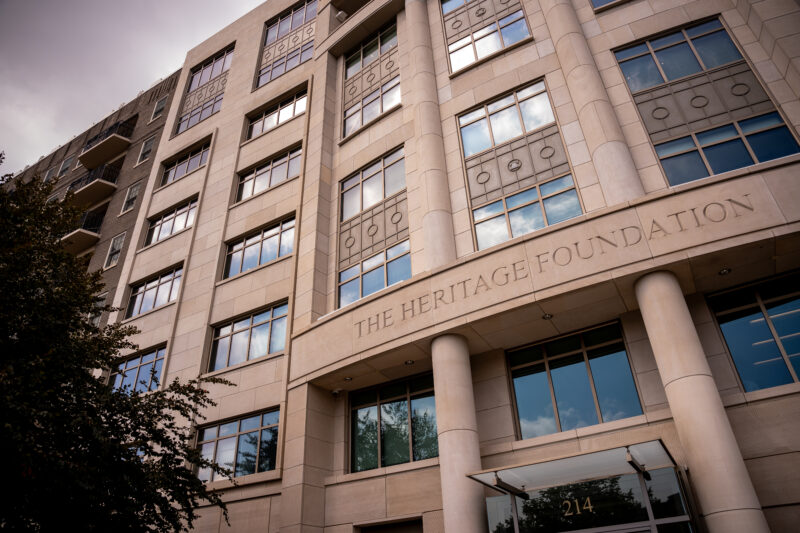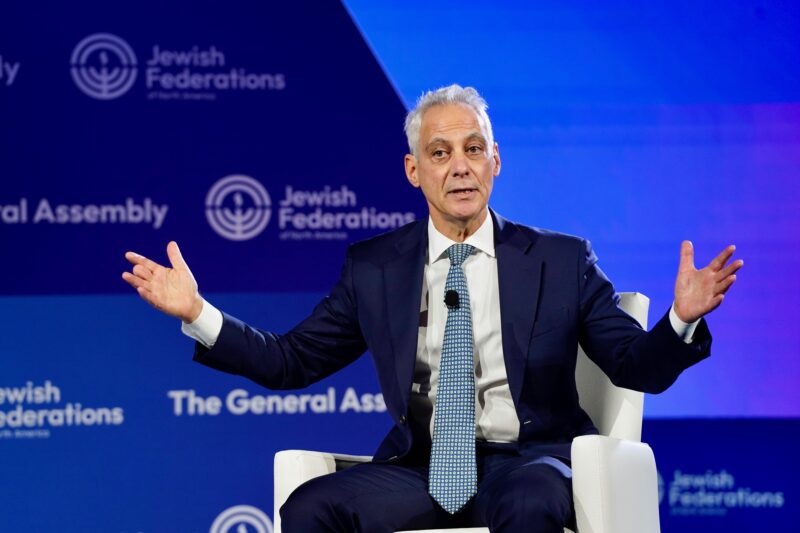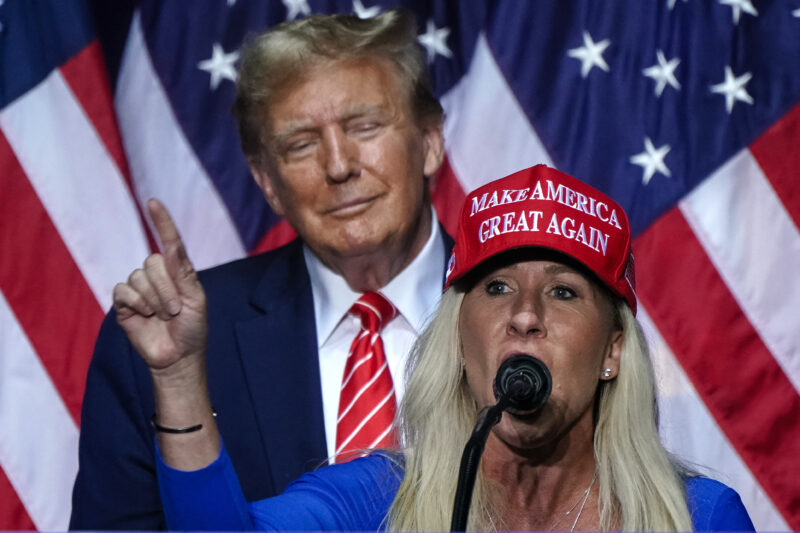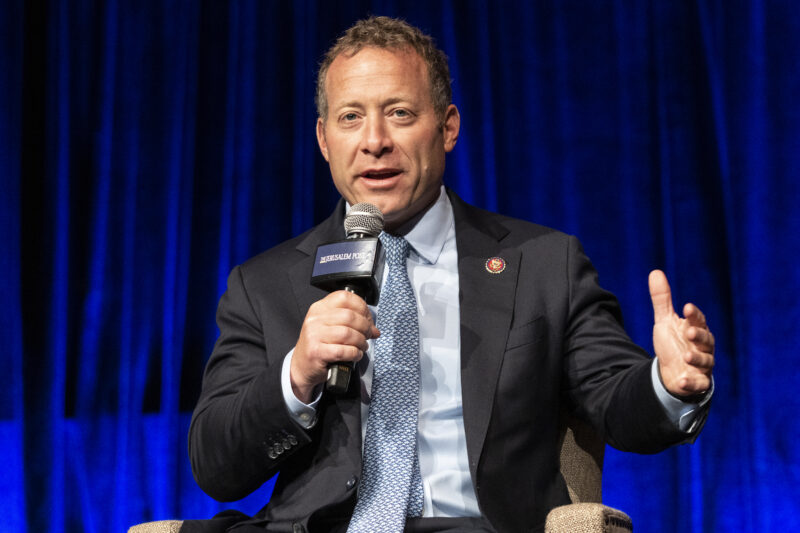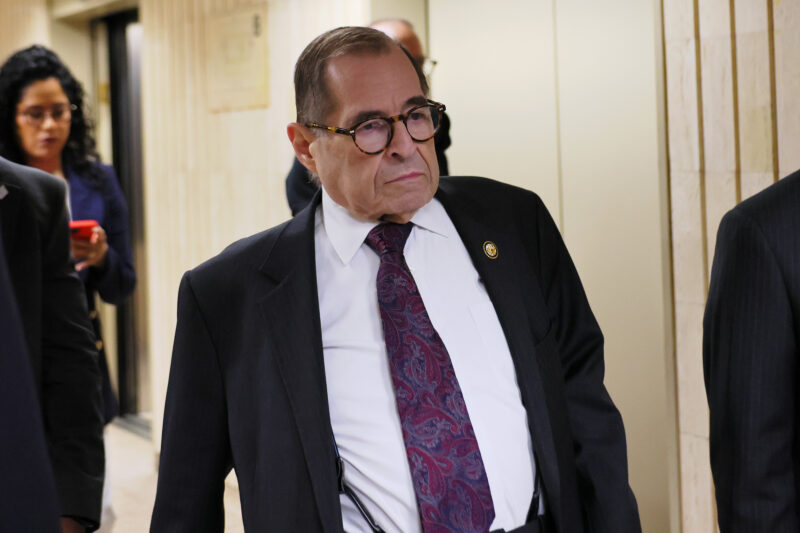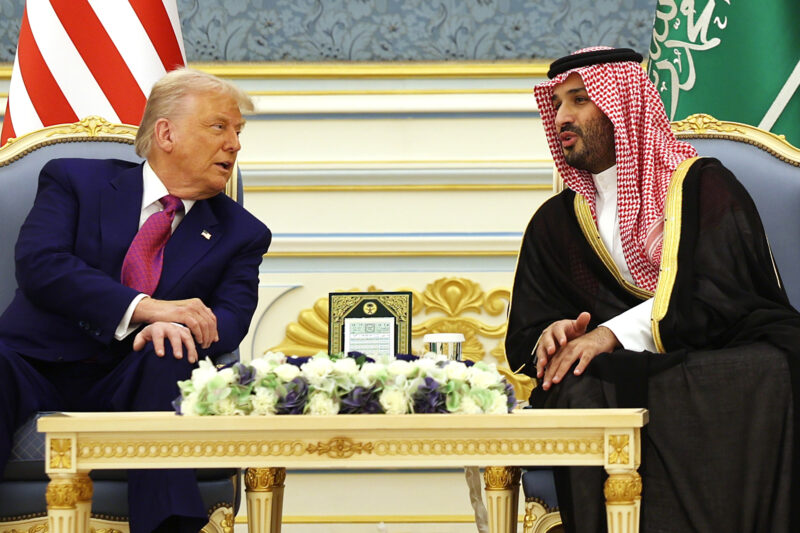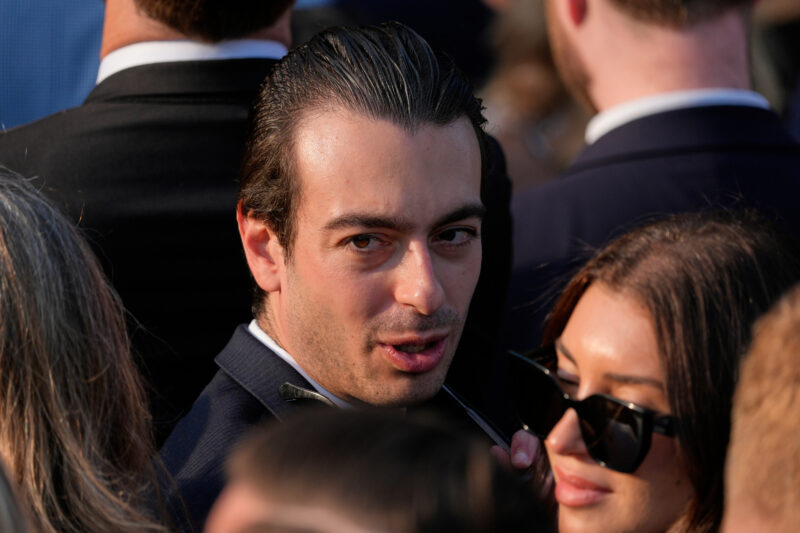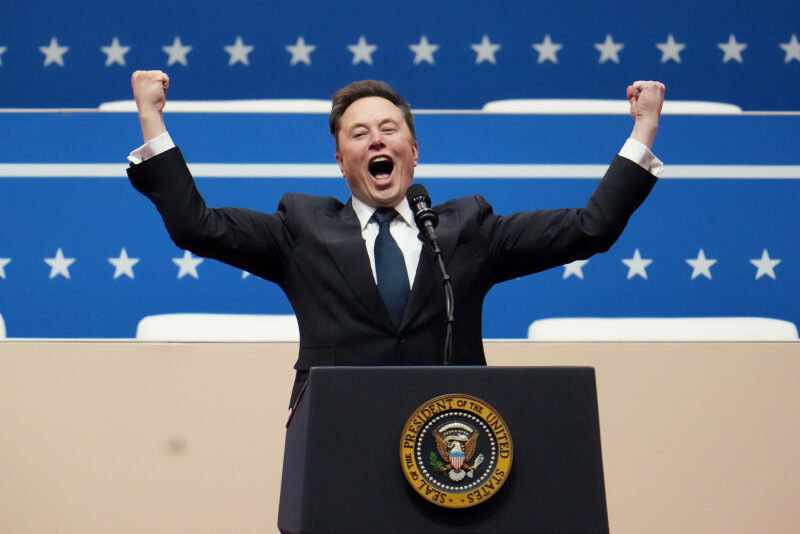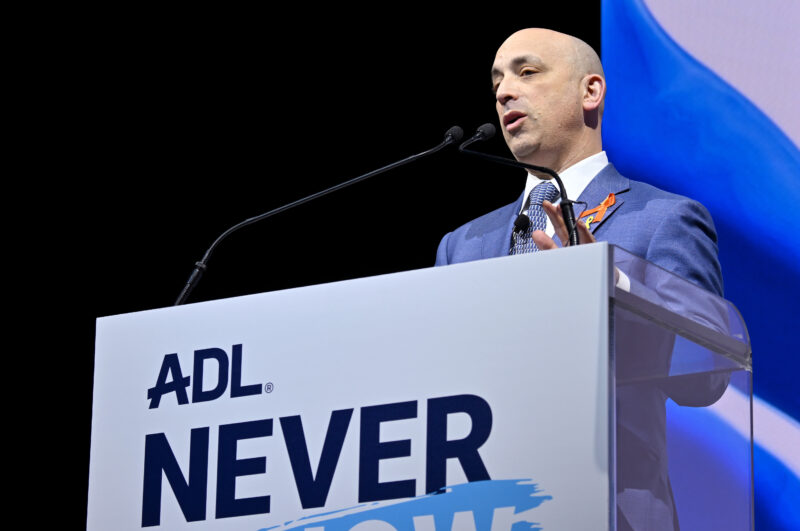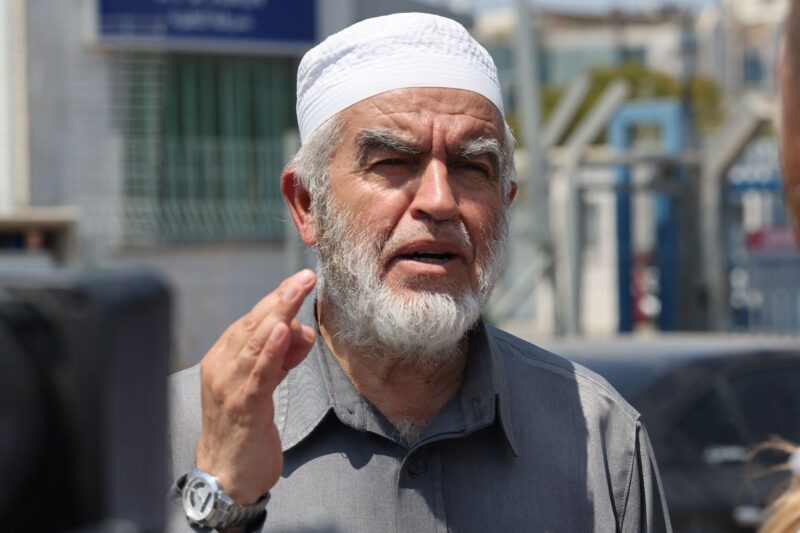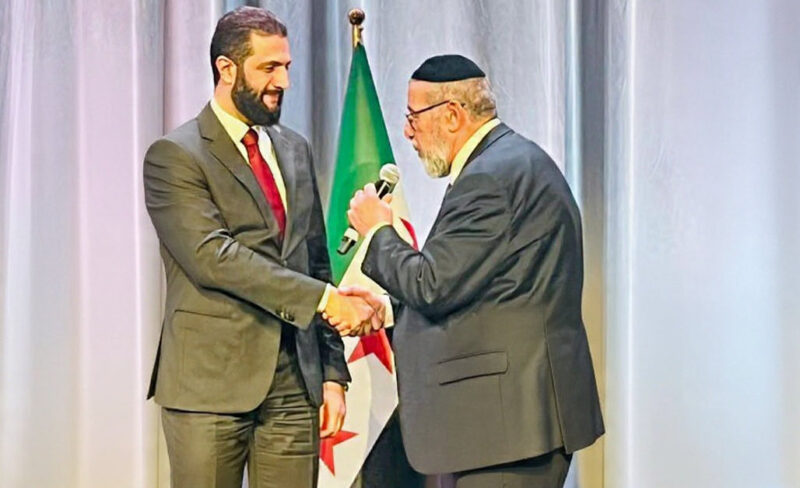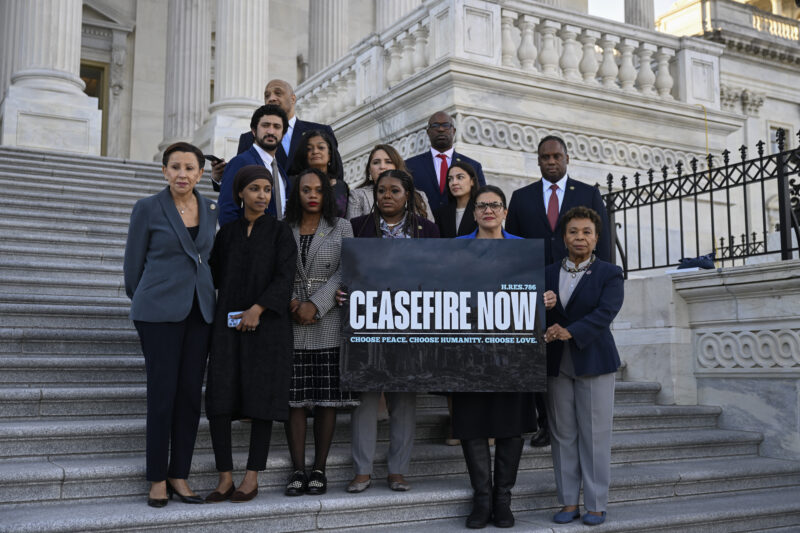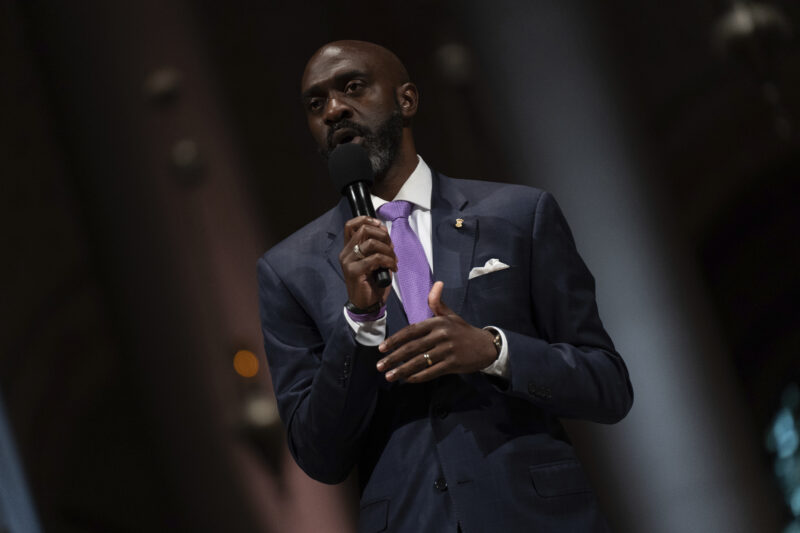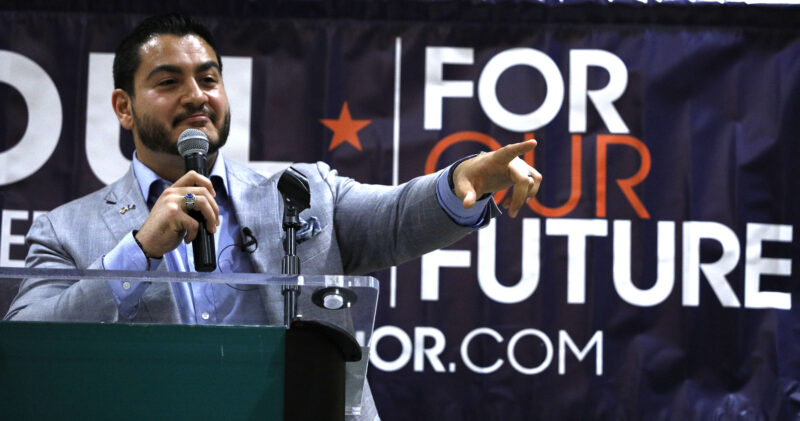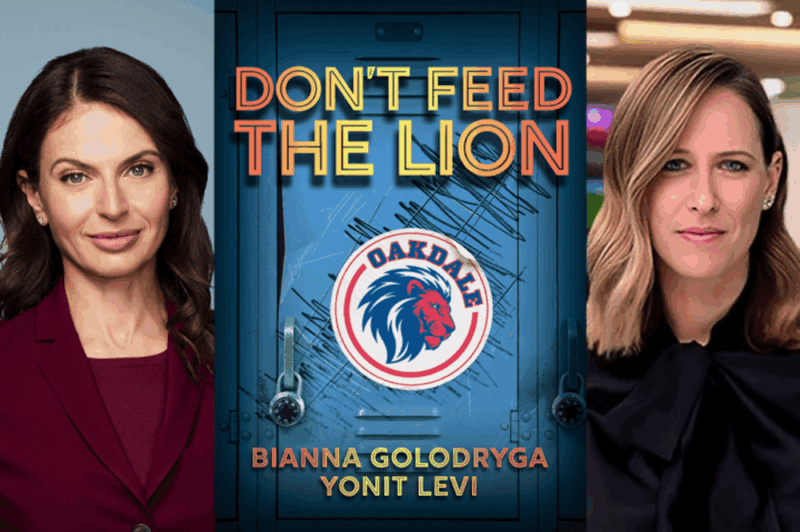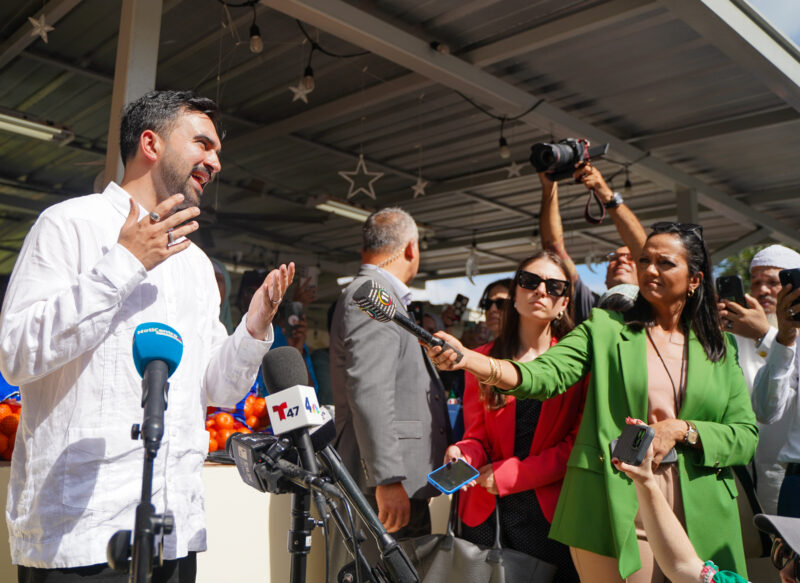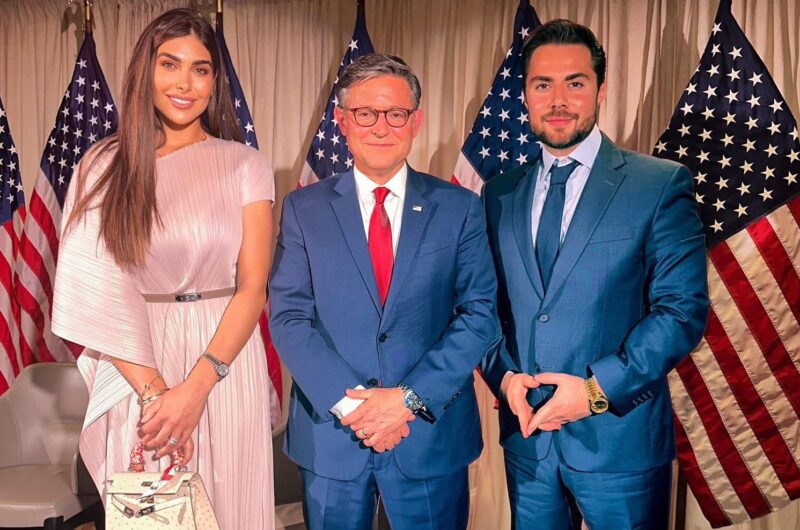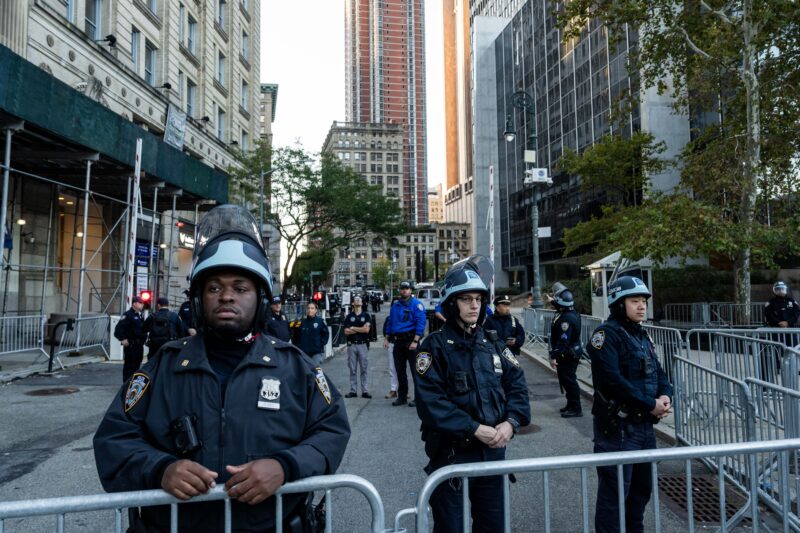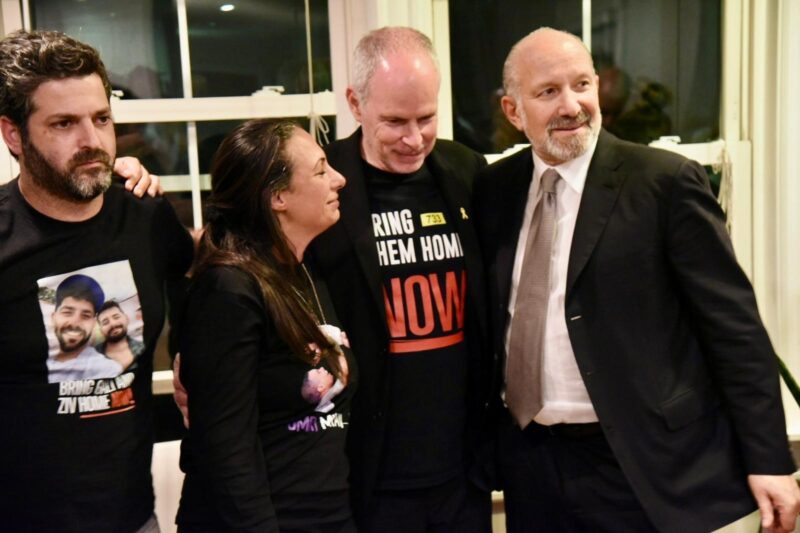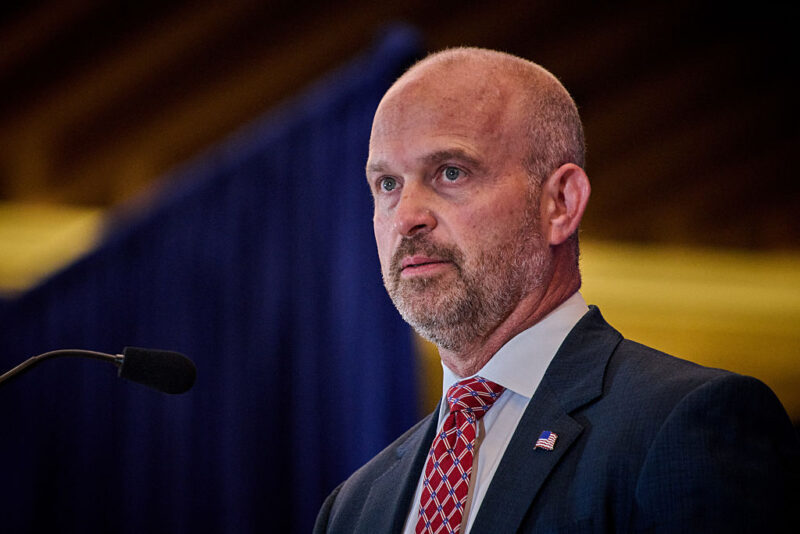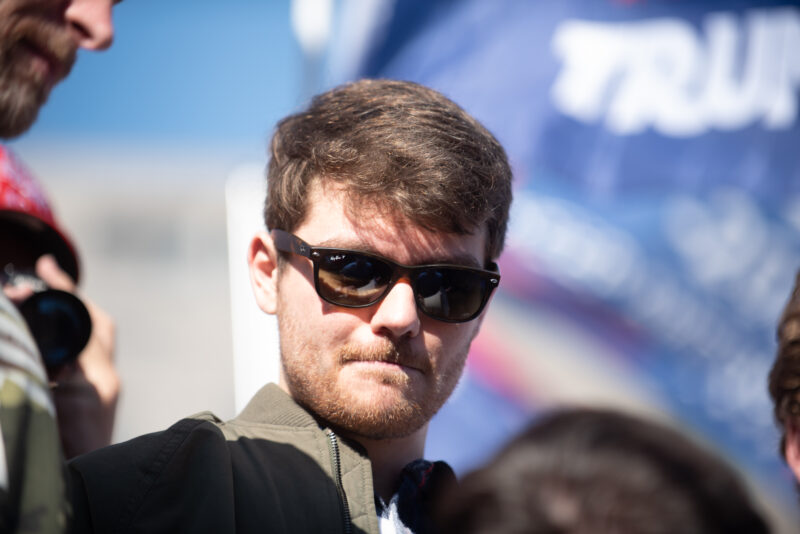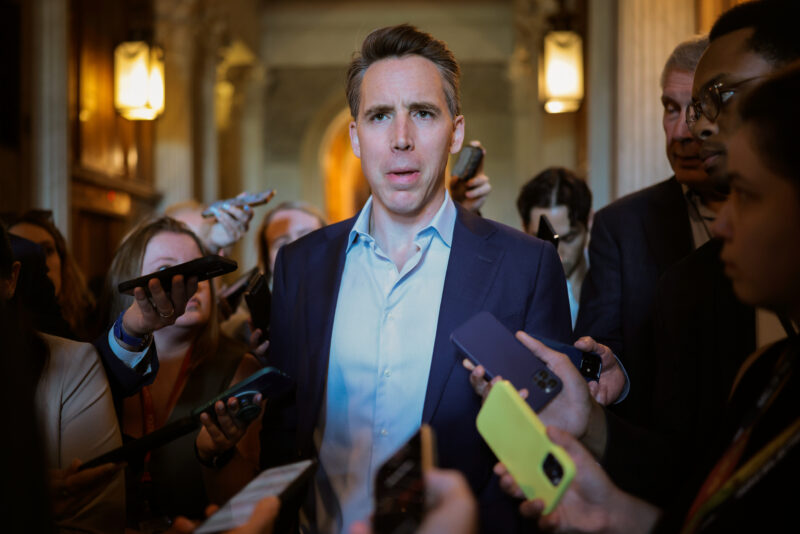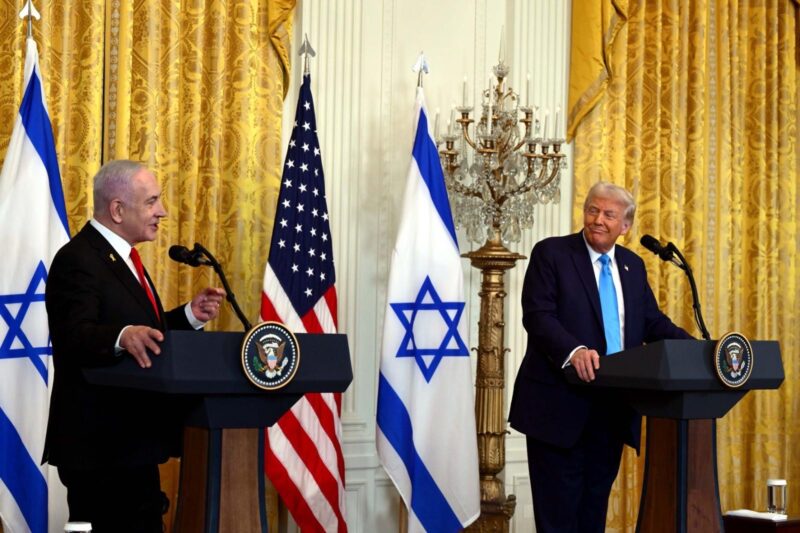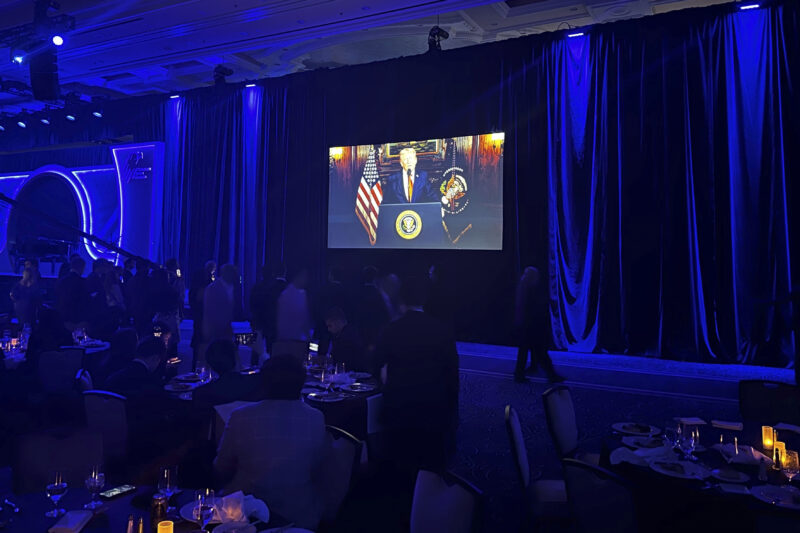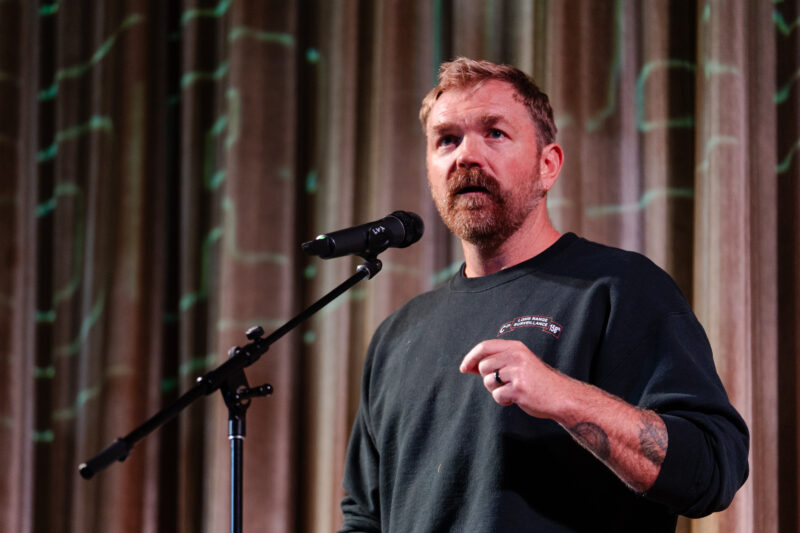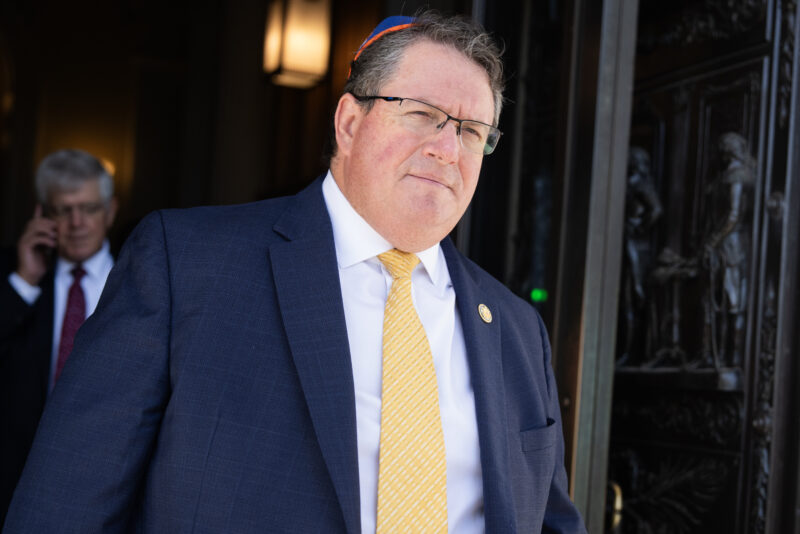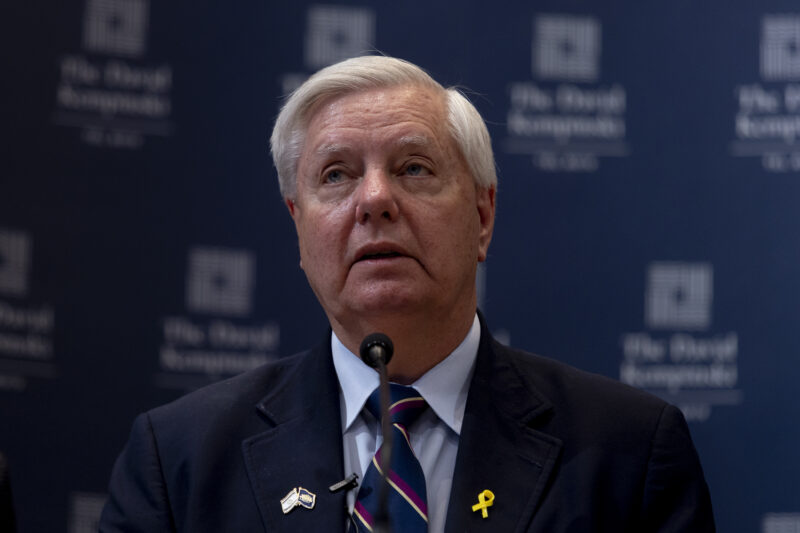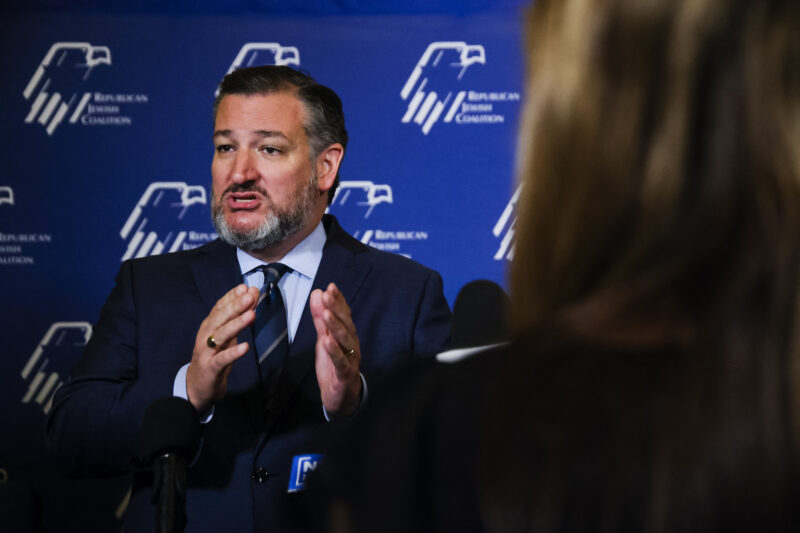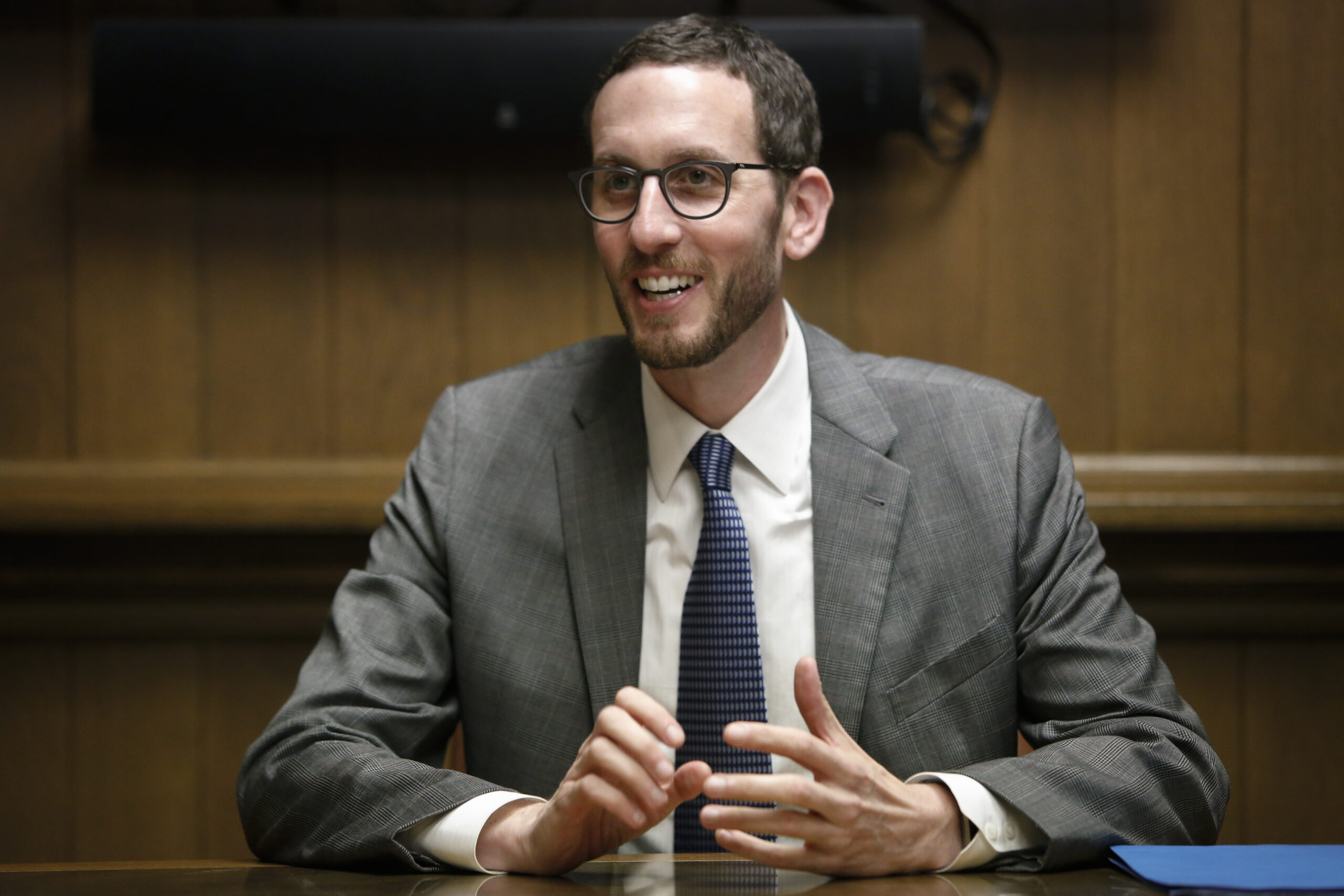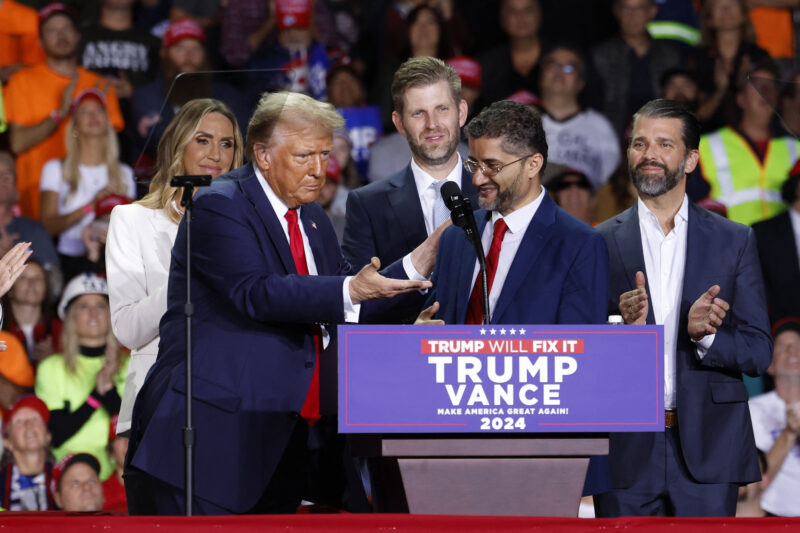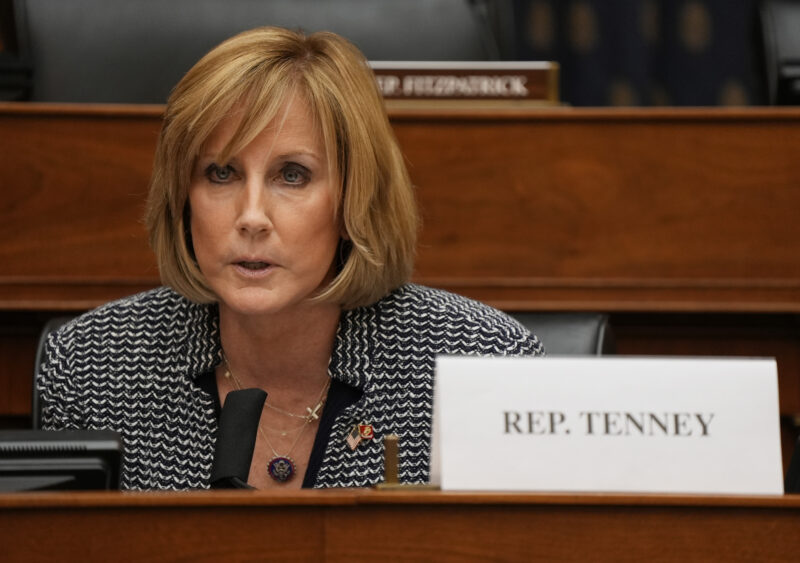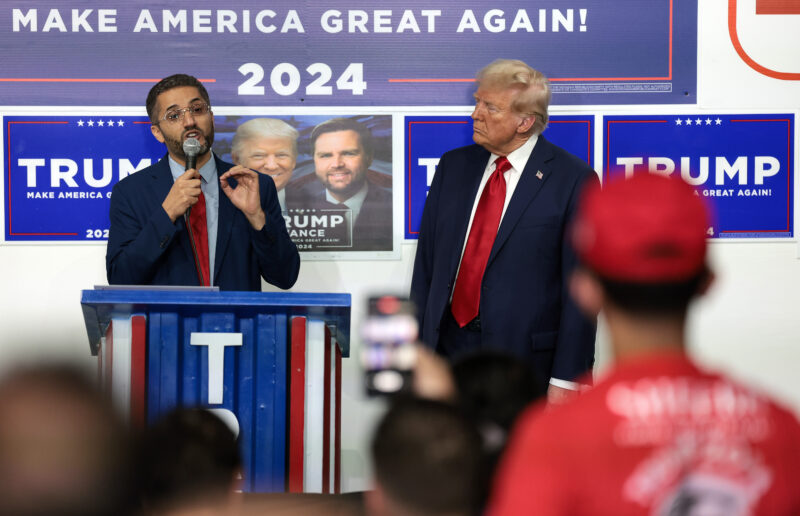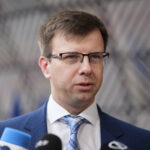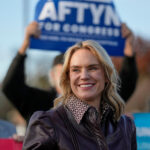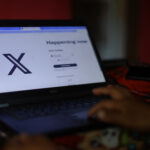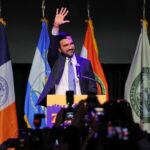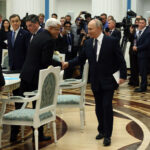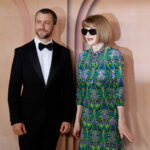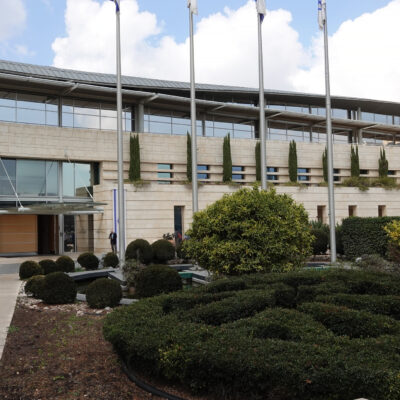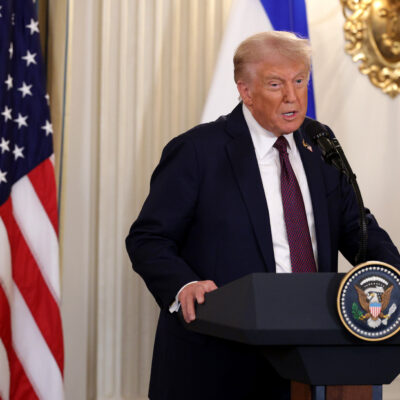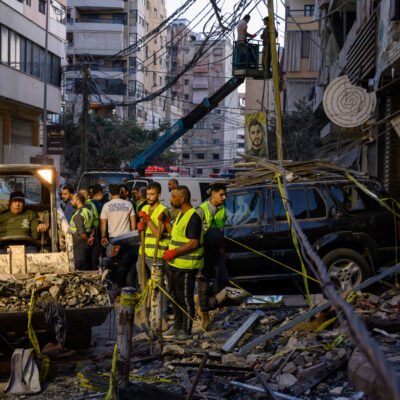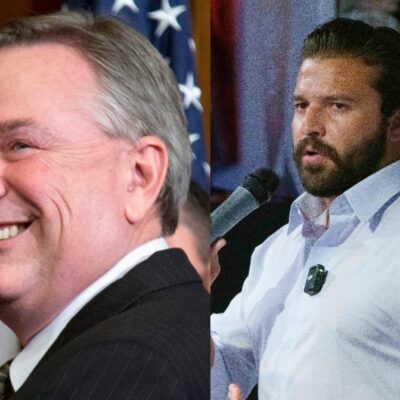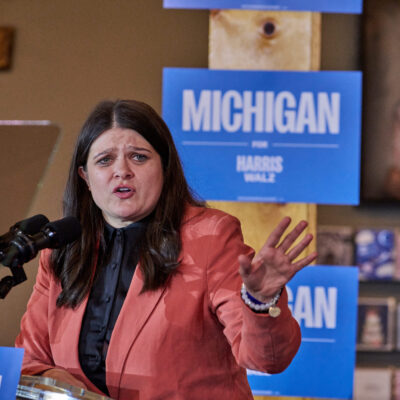Literary icons fight back against growing antisemitism in their midst
A petition by high-profile Jewish writers comes in response to one organized by The Palestinian Festival of Literature, which states that ‘We cannot in good conscience engage with Israeli institutions without interrogating their relationship to apartheid and displacement’

Ricardo Rubio/Europa Press via Getty Images
The writer Bernard-Henri Levy during the presentation of his book 'The Loneliness of Israel', at the Centro Sefarad-Israel, on 17 October, 2024 in Madrid, Spain.
The latest chapter in the emerging story of the literary world’s boycott of Israeli cultural institutions took a new twist this week with high-profile Jewish writers like Bernard Henri-Lévy, Howard Jacobson and David Mamet punching back.
They and more than 1,000 other authors, musicians and actors signed a sharply worded counterpetition, launched by the Creative Community For Peace on Tuesday, that argues “the instincts and motivations behind cultural boycotts, in practice and throughout history, are directly in opposition to the liberal values most writers hold sacred.” It goes on: “The exclusion of anyone who doesn’t unilaterally condemn Israel is an inversion of morality and an obfuscation of reality.” The signatories include notable writers such as Simon Schama, Lee Child and Simon Sebag Montefiore, along with Julianna Margulies, Mayim Bialik, Ozzie Osbourne and The New Yorker’s Adam Gopnik.
The petition comes in response to one publicized on Monday by The Palestinian Festival of Literature, signed by Irish author Sally Rooney and more than 1,000 others, which states that “We have a role to play. We cannot in good conscience engage with Israeli institutions without interrogating their relationship to apartheid and displacement.” Several of its signatories are Jewish authors, including Rachel Kushner and Naomi Klein. (Neither Kushner nor Klein responded to request for comment from JI).
Rooney made headlines three years ago when she infamously refused to sell the Hebrew translation of her third novel, Beautiful World Where Are You, to an Israeli publisher. But throughout 2024, such boycotts have become frequent as the war between Israel and Hamas roils the literary world. Earlier this year, anti-Israel demonstrators in Los Angeles interrupted Bialik’s interview with writer and comedian Moshe Kasher at his book signing event. Over the summer, a Brooklyn bookstore canceled its book launch event, citing the slated “Zionist” moderator Rabbi Andy Bachman.
“This is one more example that antisemitism in the literary world is not going away any time soon, and if anything it’s building steam and people are becoming much more comfortable going public with this,” Naomi Firestone-Teeter, CEO of the Jewish Book Council, told Jewish Insider about the most recent petition calling for a boycott.
In a New York Times op-ed published on Thursday, Deborah Harris, founder and director of the Jerusalem-based Deborah Harris Agency, the leading Israeli agency for literary fiction and nonfiction, and Jessica Kasmer-Jacobs, a literary agent in Israel, wrote that “targeting the Israeli publishing industry as if we have the power to negotiate a cease-fire deal or depose Prime Minister Benjamin Netanyahu is a gesture of foolish acrimony that contradicts the very thing literature is supposed to do.”
“If you believe that books have the power to change hearts and minds, why wouldn’t you try to use that power constructively instead of engaging in a boycott, to take advantage of cultural institutions to argue your case on behalf of the Palestinians?” Harris and Kasmer-Jacobs wrote.
“The authors signing the boycott are for the most part not high-profile, and let’s hope it stays that way. It’s mostly bad PR and one of those things that seems louder than it is,” Mickey Chesla, a literary agent and CEO of The Israeli Association of Book Publishers, told JI. But her main concern about the boycott, Chesla said, is “that other authors will see it and be influenced.”
Chesla noted that the romance novel industry has been particularly impacted by authors refusing to sell rights to Israeli authors. In Israel, she said “99%” of the boycotts she sees are regarding romance authors. “Readers of romance tend to be young and active on social media,” she said. “In a lot of cases it’s not even that the author has an issue with selling to Israel but that they’re afraid of being canceled on TikTok. The book industry is heavily influenced by TikTok influencers.” The others, like Sally Rooney, are “more outliers,” according to Chesla.
But even if most Israeli authors haven’t taken a major financial hit from the boycott, Firestone-Teeter warned of potential long-term implications. “The general demoralization, I can imagine that would take a toll on Israeli authors even if they aren’t feeling it today,” she said.
“I think a lot about this moment and the short-term impacts, but also what is going to come down the road based on what we’re seeing, and how we can provide support, infrastructure and a healthy Jewish book publishing pipeline,” Firestone-Teeter said. One of [the Jewish Book Council] new initiatives is an effort to urge community partners, authors and readers to sign on to supporting Jewish books and authors and being their readers.
“What we want to see is more of a public outcry standing up to support Jewish and Israeli authors,” she continued. “The other side of this is what are things we can do as a community. We are our authors’ readers, we need to really lean in on buying and promoting their books, attending their events, especially emerging authors starting their careers in this climate.”
The counterpetition, Ari Ingel, the executive director of Creative Community for Peace, told JI, “was prompted not just by the letter by Sally Rooney and others, although part of it was in response to that letter. It was mostly in response to the past year, when we’ve seen Jewish authors, and anyone considered Zionist, whether Jewish or not, targeted and harassed.”
“It’s so much bigger than this one boycott call against Israeli authors. It’s about time to put out a counternarrative. We don’t believe that it’s appropriate to shut down voices, to silence authors and to boycott culture,” he said.
Ingel noted that boycotting Israeli authors “just makes no sense,” due to the wide political spectrum of voices in the Israeli literary space.
“The book Letters To My Palestinian Neighbor by Yossi Klein Halevi, that’s supposed to be thrown in the trash? Are bookstores supposed to burn the books of Amos Oz, one of the most famous Israeli leftist authors worldwide?” Ingel said. “It is just outrageous that this is where we have gone — targeting the Israeli literary community, which has voices that are pro- and anti- [the Israeli government].”
Perhaps more concerning than the petition, Ingel said, is an emerging “silent boycott.”
“Israeli authors not being invited to book festivals and not being invited to participate in panels and readings,” he said. And it’s not only Israelis.
“Here in L.A., [actor] Brett Gelman had to cancel half of his book readings simply because he’s spoken in support of Israel,” Ingel said, “so it goes beyond the Israeli community.”




